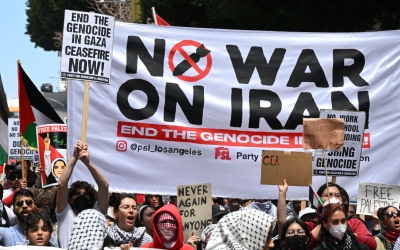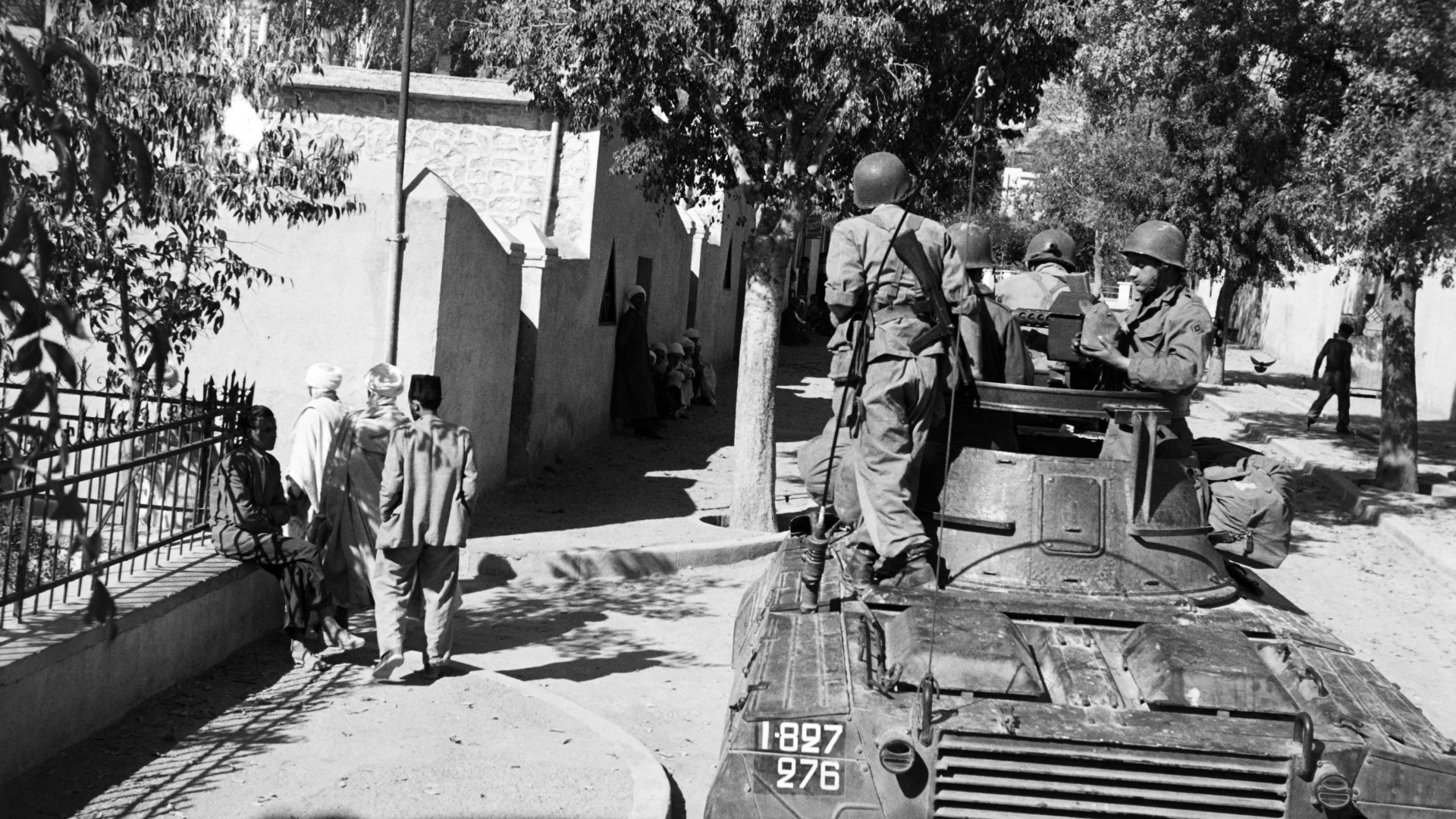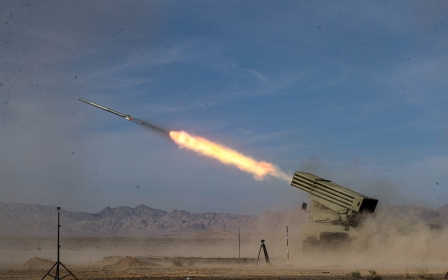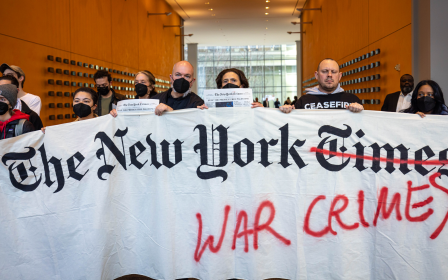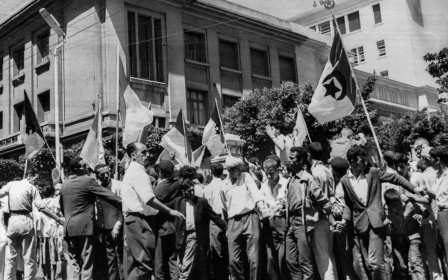War on Gaza: Why Israel's savagery is a sign of its impending defeat
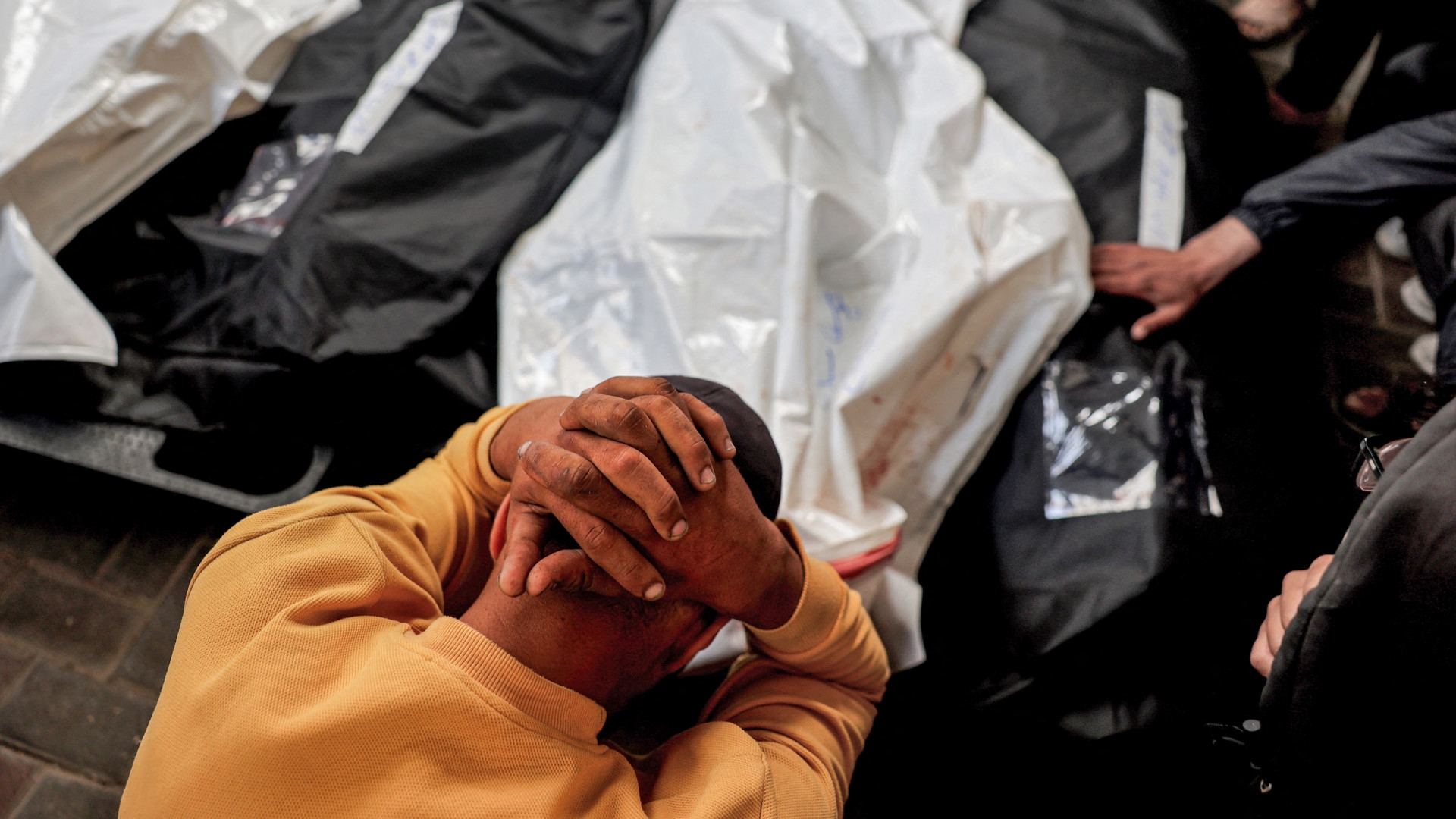
The final years of all settler-colonies are marked by more protracted colonial savagery, including genocide. The realisation that the loss of settler-colonial power is at hand drives colonial forces to use the most barbaric methods to defeat the revolt of the indigenous people.
In Kenya, the British are estimated to have killed as many as 100,000 Kenyans during the war of national liberation that ended white supremacist colonial rule in 1963. The wars of liberation in Angola and Mozambique against their Portuguese colonists and white supremacist rule cost tens of thousands of lives between 1956 and 1976.
Fearing that the two independent countries would accelerate the demise of apartheid South Africa, the US and South Africa alongside mercenary African forces waged racist wars against the peoples of both countries between 1975 and 1992, killing 1.5 million people in Angola and Mozambique out of a combined population of 23 million. Twelve million more were made refugees.
In South Africa, once the settler-colonial regime had no choice but to negotiate with the African National Congress (ANC) in 1989, it attempted to break the unity of Black South Africans by continuing to support the politician and Zulu prince Mangosuthu Buthelezi, whose followers began to clash with ANC supporters.
It was revealed that the government provided financial and military training to Buthelezi's right-wing and separatist Inkatha Freedom Party (IFP). Supported by the police, IFP members attacked people in the townships. Close to 15,000 Black Africans were killed by the South African police and security apparatus between 1989 and 1994 during this so-called peace process.
Stay informed with MEE's newsletters
Sign up to get the latest alerts, insights and analysis, starting with Turkey Unpacked
Israel has similarly killed thousands of Palestinians since signing a preliminary "peace" treaty in September 1993. In the 30-year period of the "peace process" through September 2023 - just before the current genocide in Gaza - Israel killed upwards of 12,000 Palestinians.
But of all these precedents, Algeria is perhaps the most apposite example of what has been unfolding in Gaza.
Violent suppression
In January 1955, former French minister of the colonies and anthropologist of pre-Columbian civilisations Jacques Soustelle, a Protestant anti-fascist from Montpellier, was appointed governor-general of Algeria.
As the new Edgar Faure government, which came to power a month later, was busy suppressing anti-colonial struggles in Tunisia and Morocco, Soustelle was running Algeria on his own. He created the Sections Administratives Specialisees (SAS) to undermine the Algerian National Liberation Front (FLN) and win over the Algerians.
But of all the precedents, Algeria is perhaps the most apposite example of what has been unfolding in Gaza
The army, meanwhile, began to depopulate Algerian villages, relocating whole villages away from FLN areas of activity. It further established Algerian anti-FLN militias, depicting the FLN fighters as "locusts" in a huge propaganda campaign while representing itself as saving the Algerians from the evils of communism and Egyptian President Gamal Abdul-Nasser's Arab nationalism.
This is not unlike the American and Israeli attempts to "save" Palestinians from the evils of "terrorism" and Iranian solidarity.
By April 1955, the French declared a state of emergency in some areas, which gradually extended to all of Algeria. Collective punishment of Algerian villages and indiscriminate torture of those arrested were now the order of the day as the government called in the army reserves among the colonists to join the fight.
An uprising in August 1955 saw Algerians attack the colonists in the colony of Philippeville, as well as police and army soldiers. They killed 100 Europeans, and many of them were hacked to death.
The French army, police, and the colonists responded by killing thousands of Algerians. Dozens were shot on the spot, and hundreds were herded into the Philippeville football stadium and executed. Anywhere between 12,000 and 20,000 people were killed. A new phase of the revolt had just begun.
Follow Middle East Eye's live coverage of the Israel-Palestine war
Even the assimilationist and assimilated Algerians, referred to as "evolved" or "elus", were horrified by the scale of the repression and abandoned Soustelle.
By June 1956, 450,000 French soldiers were stationed in Algeria. They engaged the 20,000 revolutionaries who were supported by 40,000 auxiliaries. The FLN also recruited close to 2,000 Algerian women into its ranks.
The French burned down villages, pursued a policy of summary executions, and tortured captured FLN fighters or those mistaken for them. FLN prisoners were also executed by guillotine in Algiers. The FLN killed ten colonists to avenge them. The colonists, in turn, blew up the Algerian quarter in Algiers, killing 70 people. The FLN struck back, blowing up two cafes in the white area of Algiers, killing four colonists.
Imperial justifications
Although secret negotiations between the French government and the FLN political leaders were simultaneously taking place in Cairo, on 22 October 1956, the French army decided to intercept a plane flying from Morocco to Tunis while passing through Algerian airspace. The five FLN political leaders on board, including Ahmed Ben Bella, who were travelling for one such secret meeting with the French, were arrested and detained until 1962.
Blaming Egypt for the revolt in Algeria, France launched an invasion of the country with the British and the Israelis in November 1956, which would end in defeat and increase Nasser's popularity across the Arab World.
The young Martinican psychiatrist Frantz Fanon, who had joined the FLN in 1956, understood the significance of the French motivations for the invasion: "The Suez expedition was meant to strike the Algerian Revolution at the summit. Egypt, accused of directing the struggle of the Algerian people, was criminally bombarded."
In contrast, German Jewish philosophers Max Horkheimer and Theodor Adorno, the founders of the Frankfurt School of Critical Theory who fled the Nazis to the US in the 1930s, became Zionist cold warriors after the war and enthusiastically supported the invasion of Egypt. They considered Nasser "a fascist chieftain" who "conspires with Moscow".
They added that "No one even ventures to point out that these Arab robber states have been on the lookout for years for an opportunity to fall upon Israel and to slaughter the Jews who have found refuge there."
If these imperialist justifications remind us of how Iran today is targeted as the force behind the Palestinian revolt in Gaza and the West Bank and is constantly being threatened and attacked by Israel, the US, and their Arab allies, it is because the rhetoric is the same.
International isolation
The mobilisation of resistance against the colonial-settler order led to massive French repression during the Battle of Algiers, fought from January to September 1957, including the widespread torture of civilians.
By October 1957, French repression and mass murder by the army, police, and colonists, in which key leaders of the FLN resistance were captured or killed, effectively ended the Battle of Algiers.
However, while the FLN was defeated militarily, it scored major diplomatic victories. In December 1957, the Afro-Asian Conference meeting in Cairo gave its full endorsement and support to the FLN and the call for independence, as had then-US Senator John F Kennedy, who supported Algerian independence earlier in July.
There was also growing support for Algeria's independence at the UN. The US, however, abstained on a General Assembly resolution in December 1957 recognising Algerians' right to independence.
Even though the FLN was defeated in Algiers, the French war against its fighters continued, culminating in the massacre of Saqiyat Sidi Yusuf. In February 1958, the French bombing of the Tunisian border town killed 70 civilians, including scores of children - a war crime condemned across the Arab world and by the Eisenhower administration.
Months later, Charles de Gaulle, who became the new French prime minister, visited Algeria on 4 June to an enthusiastic reception from the colonists, to whom he said: "I have understood you." He soon issued a new constitution and became president of the republic. His manoeuvres worried some in the FLN leadership that if they lost, "Algeria would suffer the same fate as Palestine".
In September 1958, the FLN declared in Cairo an Algerian Provisional Government of the new Algerian republic to be liberated, which was immediately recognised by the Arab states as well as other Third World states.
Meanwhile, the French secret service went on a rampage of assassinations and attacked FLN members and German arms traders in Germany. They blew up a ship in Hamburg harbour carrying arms to Algeria, attacks to which Chancellor Konrad Adenauer's West Germany turned a blind eye while spying on Algerians and other Muslims for the French.
In October, de Gaulle spoke of "the peace of the brave" (a phrase the buffoonish Yasser Arafat would later adopt) that he wanted to pursue in Algeria as he ordered a new offensive against the FLN.
Final days
The French continued to recruit Algerian collaborators who, by then, expanded from 26,000 to 60,000 men to track the FLN's Army of National Liberation (ALN), not unlike the Palestinian Authority's mercenaries who are trained by the Americans and Europeans today.
By April 1959, overwhelmed by the intensity of French repression and the massive number of French soldiers and Algerian collaborators, half the ALN fighters were killed. By October, 2,157,000 Algerians were "relocated" by the French and herded in 1,242 concentration camps under army control, with more than a quarter million becoming refugees in neighbouring Tunisia and Morocco.
The white supremacist world of Europe and its surviving white settler-colonies are just as supportive of Israel's genocide as they had been of its predecessors in Africa
The 60,000 Algerian collaborators ("harkis") were now organised into units to help the French capture ALN fighters. An additional 19,000 collaborators were organised into a militia.
Whereas French philosophers such as Jean-Paul Sartre and Francis Jeanson, like Frantz Fanon, supported Algerian independence and the FLN, the Algerian Jewish philosopher Jacques Derrida sided with the colonists and opposed Algeria's independence.
With Third World support, a UN General Assembly voted for a resolution in support of Algerian self-determination. It rejected the possibility of partition, which de Gaulle had suggested the previous year (63 countries voted in favour of the resolution, and eight opposed it, with 27 abstentions).
Soon after the UN vote, De Gaulle began negotiations with the FLN, and the French colonists established a new terrorist organisation, called Organisation de l'Armee Secrete (OAS), in General Franco's Madrid. As talks between the FLN and the French were to start in April 1961 in the Swiss city of Evian, colonial terrorists assassinated the mayor of Evian.
Meanwhile, in July 1961, the French bombed the Tunisian port city of Bizerte, killing 4,000 Tunisian civilians and injuring thousands more, targeting the site where a French army base existed and which the French refused to vacate.
This resulted in more international condemnation and further isolation of France. However, the US and the UK, not unlike their current protection of Israel at the UN, killed a UN resolution calling for negotiations regarding the French evacuation of the base at Bizerte.
Terrorist attacks by the colonists would continue but would ultimately be defeated by the French military.
When the Algerians finally won their independence in 1962, they had lost upwards of 300,000 people whom the French had killed since 1954. In total, more than a million Algerians were killed by France since it first colonised Algeria in 1830.
So far, the Israelis have killed more than 33,000 Palestinians in the last six months, with thousands more who remain buried under the rubble.
They have shown an appetite and a readiness to kill many more to preserve their Jewish supremacist settler-colony. As with the erstwhile white settler-colonies, the white supremacist world of Europe and its surviving white settler-colonies are just as supportive of Israel's genocide as they had been of its predecessors in Africa since the Second World War - as are many of the western pundits and intellectuals, including Jurgen Habermas, the heir of the Frankfurt School.
As to how many more Palestinians they will let Israel kill in its final years before it is dismantled and replaced by a decolonised non-racial state is something only White House strategists know.
The views expressed in this article belong to the author and do not necessarily reflect the editorial policy of Middle East Eye.
Middle East Eye delivers independent and unrivalled coverage and analysis of the Middle East, North Africa and beyond. To learn more about republishing this content and the associated fees, please fill out this form. More about MEE can be found here.



